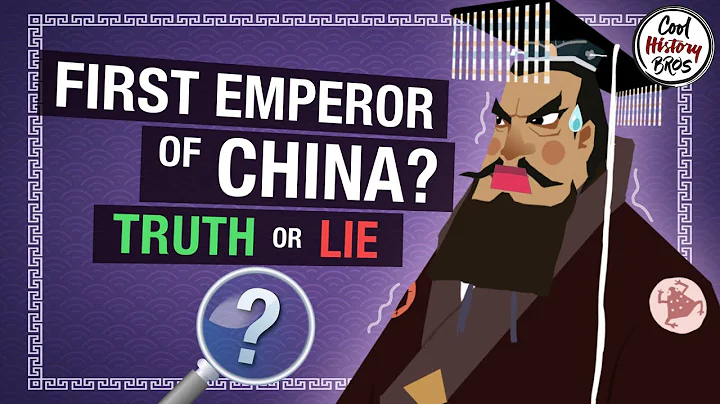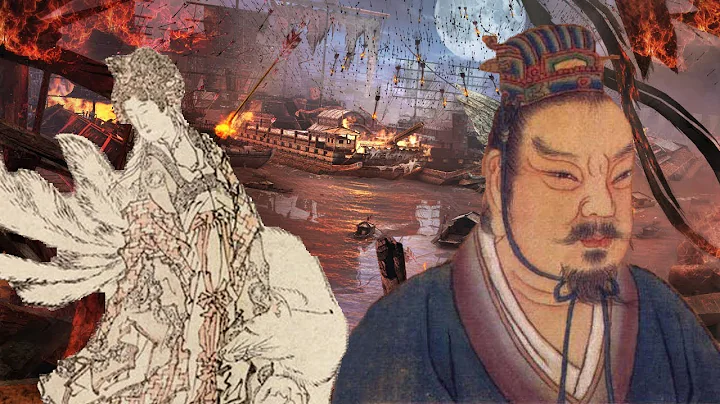Introduction:
He never led troops to fight in a war, but after his death, he was posthumously promoted to Army General by Chiang Kai-shek . He once wrote a book and asked Liang Qichao to write a preface. Liang Qichao later asked him to write a preface. He worked hard for China to defeat the Japanese invaders, but he married a Japanese woman as his wife. He has a son-in-law named Qian Xuesen, and a wife and nephew named Cha Liangyong, whose pen name is Jin Yong. He is Jiang Baili , a magical existence in the history of the Republic of China!
Jiang Baili was born in 1882. His grandfather Jiang Guangxu was a famous bibliophile in the Qing Dynasty, with a collection of 100,000 books. Therefore, it is not an exaggeration to say that Jiang Baili was born in a "scholarly family".
When Jiang Baili was 13 years old, his father died. Because his father was born with a disability, he was sent to a temple to become a monk. Later, he returned to lay life to study medicine, married a wife and had children. Jiang Baili was born. However, because his father became a monk, Jiang Baili could not be included in the Jiang family, and he had to Without the family inheritance, he and his mother have been dependent on each other since childhood.
At that time, other children in the Jiang family were taught by private teachers, but Jiang Baili could only attend classes outside the study room. Later, the teacher discovered that Jiang Baili was extremely intelligent and decided not to charge him tuition fees and teach him to read for free.
Just like that, Jiang Baili passed the scholar examination when he was 16 years old. His mother advised him to become a private school teacher and live a stable life, but Jiang Baili’s ambition was not there. When he was 19 years old, he traveled east to Japan and applied for the Japanese Army Non-commissioned Officer. School .

In 1905, Jiang Baili graduated from the Japanese Army Non-commissioned Officer School, ranking among the best. In front of all the graduates, he took away the saber given by the Emperor of Japan , which made all Japanese people lose face. Among the Japanese students present were Tojo Hideki , Doi Enji, Itagaki Seishiro and others.
Because of Jiang Baili, Army Sergeant School had to calculate the scores of Chinese students and Japanese students separately to prevent Chinese students from taking away the Imperial Saber again.
In 1906, Jiang Baili was sent to Germany to study military affairs and became a company commander under Marshal Hindenburg (later became President of Germany). Four years later, Jiang Baili returned to China and immediately became the commander of the Kyoto Guards. This year, Jiang Baili was 28 years old. Looking at that time, no one of his age could compare with him.

In 1912, the 29-year-old Jiang Baili became a major general and became the principal of the Baoding Army Officer School. He promised all the students that he would train them to be the best officers, otherwise he would kill himself to thank the world!
However, at that time, the Beiyang government disapproved of Jiang Baili's new training methods. It restricted everything and even deducted school funds. Jiang Baili's complacency turned into helplessness.
At 5 o'clock in the morning on June 18, 1913, Jiang Baili summoned more than 2,000 teachers and students in the school and said sadly that he was sorry for everyone. Then he took out his pistol and shot himself in the chest. Jiang Baili committed suicide!
Fortunately, the orderly had sharp eyesight and quick hands and pulled Jiang Baili away. The bullet did not damage his heart. Jiang Baili attempted suicide, which shocked the whole country. Yuan Shikai ordered to find the best Japanese hospital to treat Jiang Baili. During the treatment, Jiang Baili met his Japanese wife Satoya Noden .

Before this, Jiang Baili had a first wife, who was appointed by his parents, but Jiang Baili was never willing to accept it. Her name was Cha Pinzhen, and she had a nephew named Cha Liangyong, who later became a famous writer. Jin Yong.
The third daughter of Jiang Baili and Sato Yanobu, named Jiang Ying, later married the only son of Jiang Baili's good friend Qian Junfu, who later became the famous scientist Qian Xuesen.
In 1920, Jiang Baili wrote a book " History of the European Renaissance ". He asked Liang Qichao to write a preface. Short preface. Then he named the long preface he wrote "Introduction to Qing Dynasty Academics" and published it separately, and in turn asked Jiang Baili to write a preface for it.

In the next 15 years, Jiang Baili was obsessed with literary research and published a total of 16 sets of 86 kinds of books.Finally, in 1937, Jiang Baili published a book, the famous "On National Defense".
In "On National Defense", Jiang Baili summarized the strategy against Japan into three points:
First, China is not afraid of Japan swallowing up the whale, but it is afraid of the other side's encroachment. It should take the initiative to implement a comprehensive war of resistance so that it has no time to digest the occupied areas. This was later accomplished by the Communist Party troops.
The second is to take the initiative to attack the Japanese army in Shanghai, forcing the Japanese army to stop fighting from north to south. The second is to start from Shanghai and fight from east to west, using mountains and rivers to contain the Japanese army's advantages in weapons and training. The Kuomintang troops did this.
The third is to trade space for time, fight a protracted war, and drag the Japanese army into the second trapezoid of Chinese geography , that is, the junction of Hunan and Sichuan. The longer the Japanese army is delayed, the closer they will be to victory.

Judging from these three points, the subsequent Anti-Japanese War situation indeed developed in accordance with Jiang Baili's judgment.
In October 1938, Chiang Kai-shek handed over the position of president of Army University to Jiang Baili. However, only a month later, Jiang Baili passed away due to heart disease at the age of 56.
Postscript:
The idiom "army on paper" is a derogatory term in most cases, but when used on Jiang Baili, it is a complimentary term. Although Jiang Baili has never led troops or fought in a war, he is still an outstanding soldier. He is the kind of person who stays away from the flames of war and analyzes the war situation from a strategic perspective.
During the Anti-Japanese War period, Chiang Kai-shek did not make any peace with Japan from beginning to end. This may have a lot to do with Jiang Baili's "win or lose, but no peace".
Reference:
Jiang Baili’s Multiple Lives. Beijing Evening News. 2020-04-15[Citation date 2020-07-06]
Jiang Baili: An Army General who has never been on the battlefield. Netease.com. 2015-11-03 [Citation date 2020-07-09]
A famous general with both civil and military skills. People's Daily Online [cited date 2020-03-05]
"The Temperature of History"










![[ENG SUB] The Mystery of Emperor Qian Long 01 钱塘传奇 | Chinese Historical Romance - DayDayNews](https://i.ytimg.com/vi/UyeNVyKRPUg/hq720.jpg?sqp=-oaymwEcCNAFEJQDSFXyq4qpAw4IARUAAIhCGAFwAcABBg==&rs=AOn4CLAHfEaCJJ_tejA0WtMpsd9UHo1OzA)










